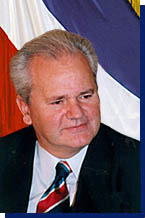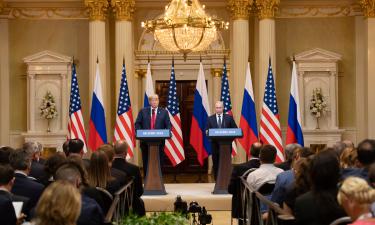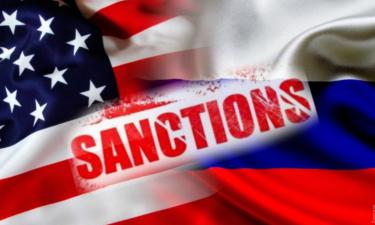U.N. tribunal doesn’t allow Milesovic to go to Russia for medical treatment
The U.N. war crimes tribunal on Friday rejected a request by Slobodan Milosevic to go to Russia for medical treatment, saying it was likely the former Yugoslav president would not return to The Hague to finish his trial. In a six-page ruling, the court's presiding judge, Patrick Robinson, also said there was no medical reason for Milosevic to go to the Bakoulev Scientific Center for Cardiovascular Surgery in Moscow .

He said if Milosevic, 64, wished "to be treated by specialists who are not from the Netherlands , such physicians may come here to treat him." Milosevic's trial, now in its fifth year, has often been delayed due to his medical condition. The aim is to wrap up the trial in April. A verdict is expected later this year and will likely be followed by a lengthy appeal.
Milosevic, who suffers from chronic heart problems and high blood pressure, is defending himself against 66 counts for war crimes allegedly committed in Bosnia , Kosovo and Croatia in the 1990s. His trial began Feb. 12, 2002 . Milosevic is in "the latter stages of a very lengthy trial in which he is charged with many serious crimes," Robinson said.
Even with guarantees from Russia that it will send Milosevic back to The Hague , the court "is not satisfied ... that the accused, if released, would return for the continuation of his trial," he said. At Friday's session at the International Criminal Tribunal for the Former Yugoslavia, Milosevic protested against Robinson's ruling, but the judge cut him off, saying: "I am not receiving any comments about that."
Separately, the Yugoslav war crimes tribunal has been waiting for months for Russia to send Dragan Zelenovic, a Bosnian Serb military police officer indicted for alleged crimes against humanity during the 1992 Bosnian Serb assault on the Bosnian town of Foca , to The Hague .
On Friday, James Bisset, a former Canadian envoy to Belgrade , continued his testimony for Milosevic, generally backing Milosevic's claims that he tried to keep the Yugoslav federation intact in the face of aggression by NATO nations. Serbia , meanwhile, faced pressure to hand over the tribunal's No. 2 most-wanted fugitive, wartime commander Gen. Ratko Mladic. Mladic and Milosevic both face changes of genocide in Bosnia for allegedly overseeing the slaughter of 8,000 Muslims from the eastern enclave of Srebrenica, the worst massacre on European soil since World War II, reports the AP.
N.U.
Subscribe to Pravda.Ru Telegram channel, Facebook, RSS!





